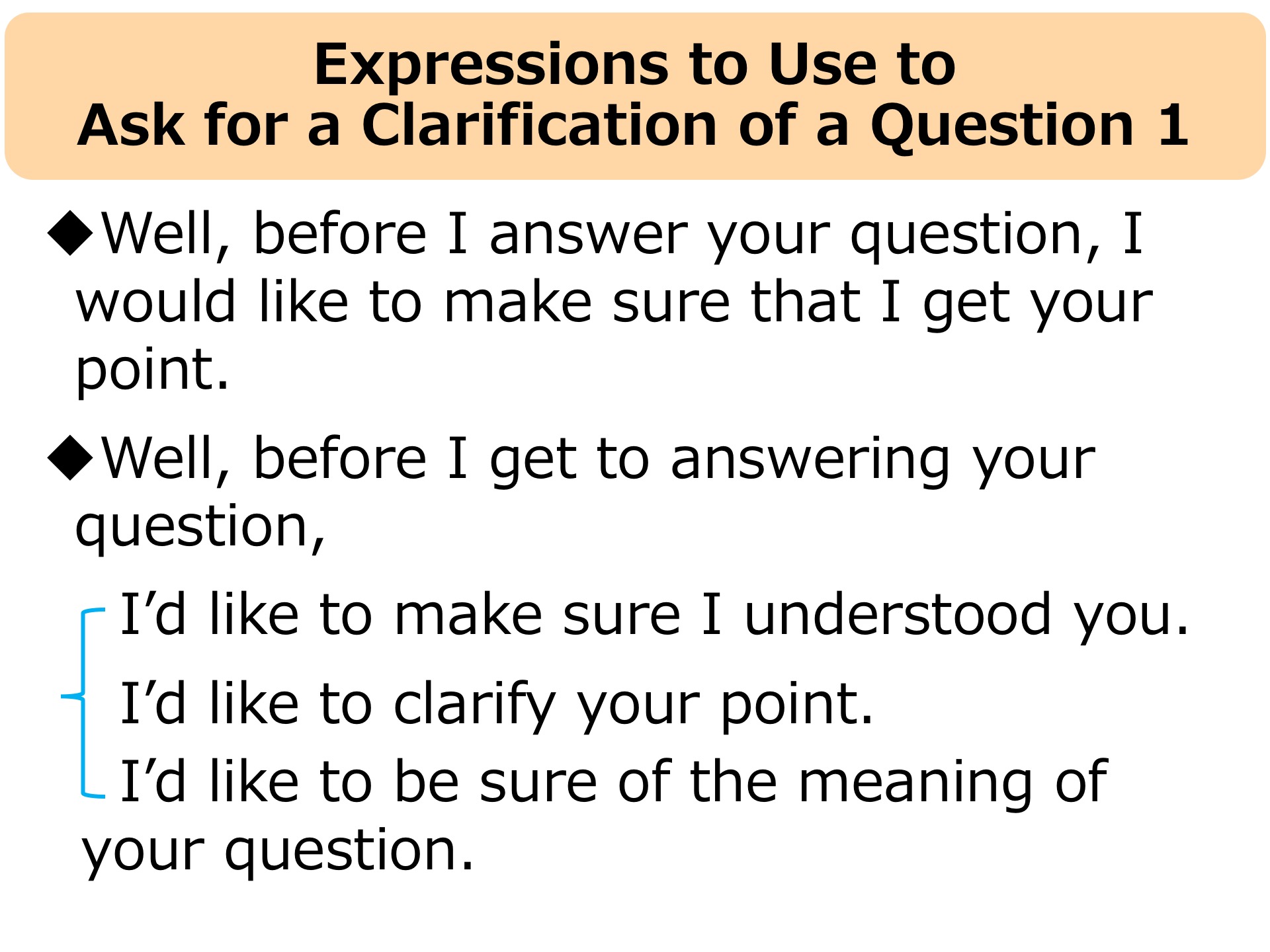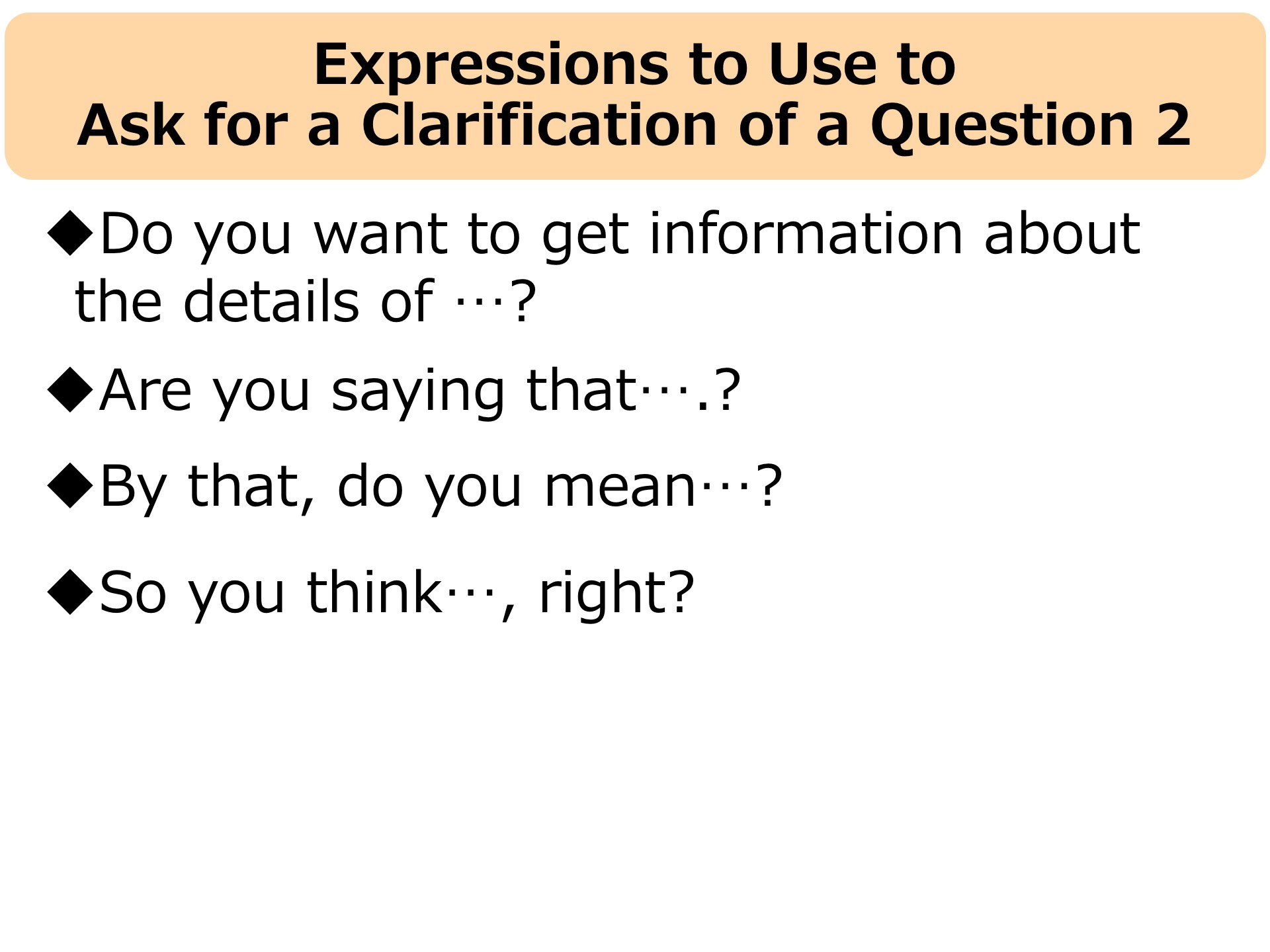5.3 How to Survive a Q&A session? (2)
(質疑応答2)

In addition to the cases we’ve just discussed, I imagine you’ll encounter other kinds of difficulties in a Q and A session. Even when you understand questions from an audience, it’s still sometimes hard, for some reason, to answer appropriately. For example, you might find it difficult to explain a really complex concept, method, procedure and so on immediately. It might also be the case that you don’t have the data that’s been requested by the audience or you need to elaborate more on the analysis of the data. There’s also some possibility that the question is off- topic.

I see. How can I respond in those cases?

Well, I recommend that you rephrase the question to the audience in order to make sure you understood it. You can expect two advantages using this tactic. First, you can clarify how you’re expected to answer. Secondly, you can make time, even if it’s very short time like 10 seconds, to think about how to answer a difficult question. If you still find answering the question difficult, you could say that it’s hard for you to answer the question directly for now and add some alternative solutions to the problem. In a case like this, I’d also like to suggest another tactic: that you mention your future research plans by saying something like “To be honest, we never looked into that possibility. We will have to report on that in the next meeting.” By using this tactic, you might be able to give a positive impression, to some extent, as a researcher even when you don’t give an answer immediately.
Here is a list of sentences/expressions that you can use in such cases.
Here is a list of sentences/expressions that you can use in such cases.

